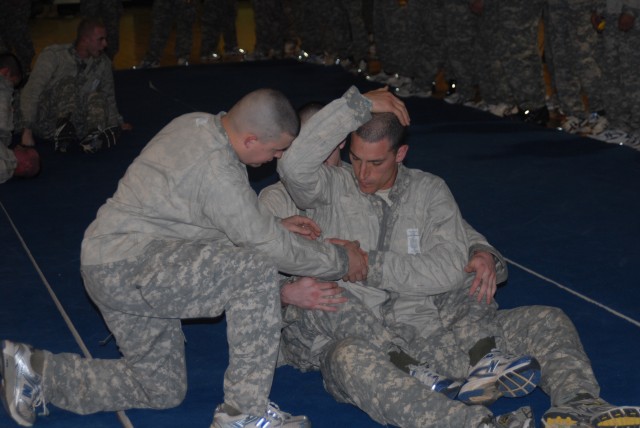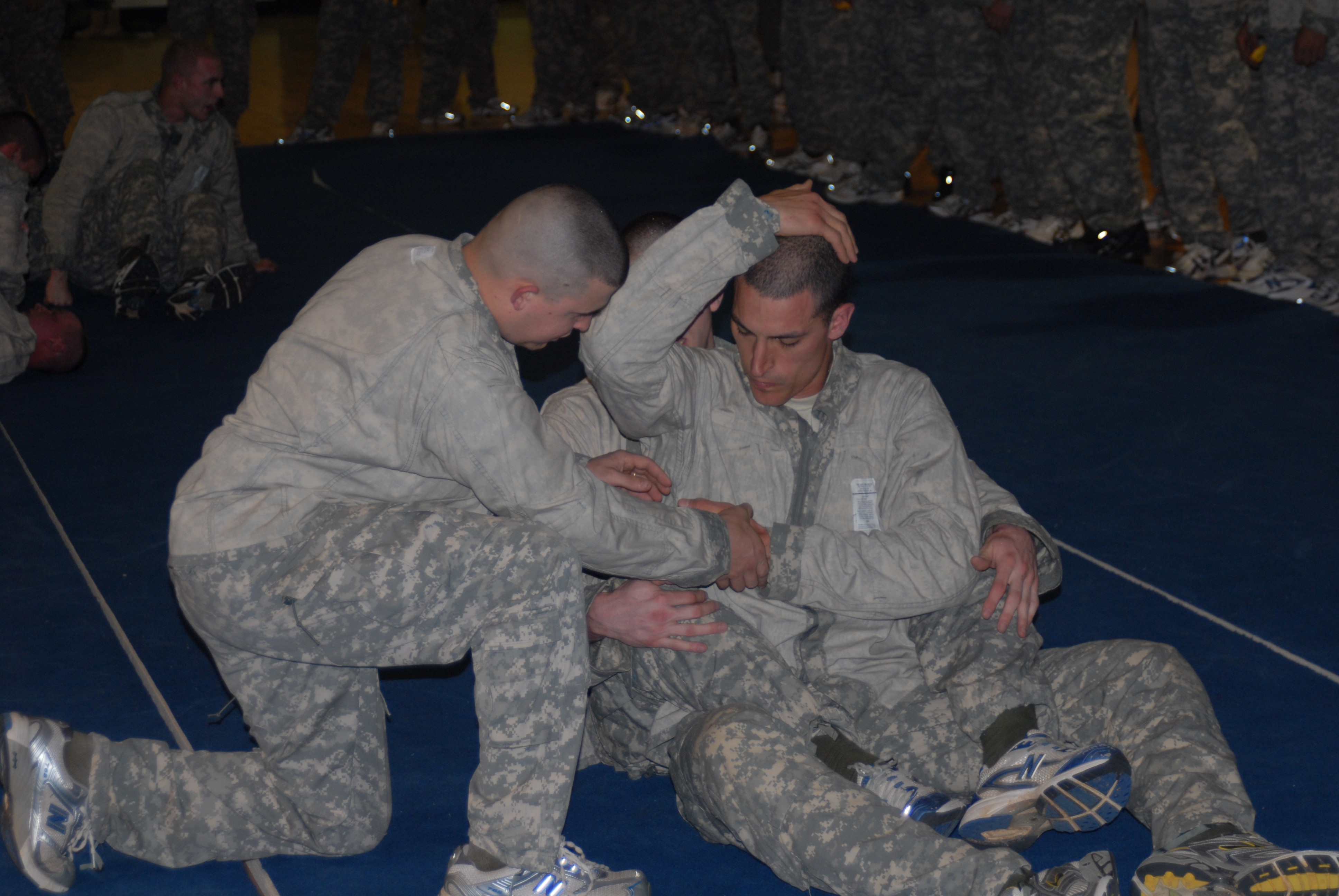FORT KNOX, Ky. -- Staff Sgt. Mark Gomez recently completed the Senior Leaders Course (formerly known as the Advanced NCO Course) at Fort Gordon, Ga. He finished as the honor graduate by maintaining a grade point average of 97 percent, in addition to passing his physical training and field training exercise with flying colors.
On top of those, he won the Distinguished Leadership award, which is something his classmates voted on.
Gomez is a drill sergeant in Company B, 2nd Battalion, 46th Infantry on Fort Knox, and he loves it.
"I can't think of anything else I'd rather be doing," Gomez said. "It's been a dream of mine ever since I was in basic; I love training new Soldiers."
With two tours to Iraq under his belt, Gomez is a qualified instructor and believes that experience helps him to train young Soldiers.
"(Soldiers in training) understand you know what you're talking about; they have more respect for you," he explained. "They know you functioned in combat situations, so they need to learn from you."
Gomez deployed with the 75th Field Artillery Brigade as well as the 555th Combat Engineer Brigade. He said the strongest NCO influence in his career came from a now-retired NCO .
"My last NCO at the 'Triple Nickel' taught me how to take care of Soldiers and train them while still taking care of myself and my career," Gomez said. "He taught me to balance Army life with civilian life."
The 27-year-old enlisted in the Army right out of high school, so he's been in nine years. The father of three children, Gomez said his wife is very supportive, even though being "on the trail" takes extra hours away from the family. She stays busy through the unit family readiness group, friends and their children.
In spite of the toll it takes on the family, Gomez is proud of his work.
"An NCO's job is rewarding; it's almost like being a teacher. You see (SITs) graduate and know how much you impacted them," he said. "They come in as civilians and walk across the stage as Soldiers. That is really rewarding."
He cites another example of an NCO's reward.
"One of my Soldiers from a combat tour in Iraq is now a coworker in the same company," Gomez said, "and he's also a drill (sergeant). I was his first NCO. I think I was a good influence."
No job, however, is without its drawbacks. If he could make one change in the NCO Corps, Gomez said, he would pump up the knowledge base.
"NCOs need more time to get together and go over NCO business to ensure everybody is training to standards," Gomez said. "Many NCOs today are very young; promotions come faster and perhaps some younger NCOs are in leadership jobs without the NCO knowledge they should have. Perhaps we just need some fine tuning of NCO knowledge."
That NCO knowledge, of course, is necessary to accomplish an NCO's most important job.
"The most important thing NCOs do is to take care of Soldiers and train them, set an example for them, be a good mentor, and show them what 'right' looks like," Gomez said.
According to Lt. Col. Matthew Coleman, the 2-46 Battalion commander, Gomez is a professional NCO who carries out his mission extremely well. "He is what 'right' looks like," Coleman said.


Social Sharing